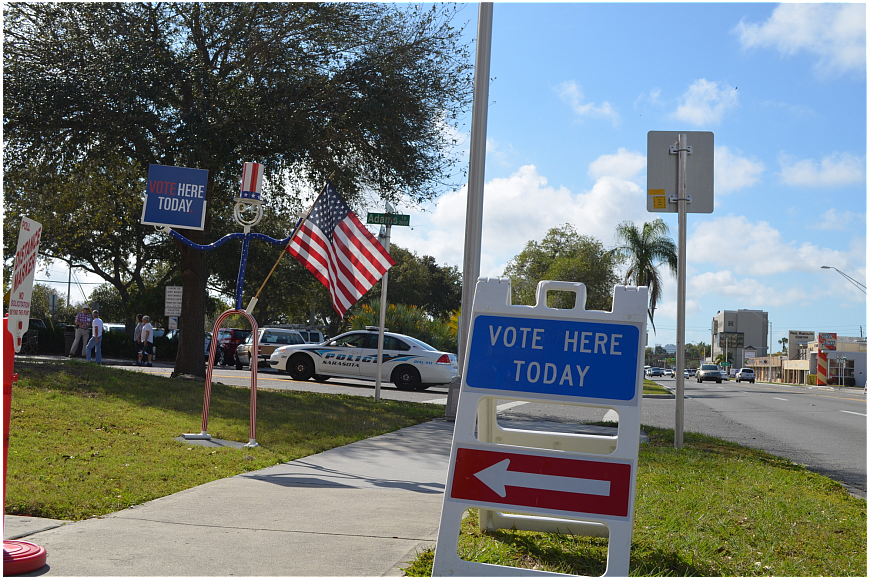- July 26, 2024
-
-
Loading

Loading

The city is obligated to place a referendum on the November ballot about moving the city’s election dates, but first, it must make a series of decisions related to the potential change.
The referendum will ask voters whether the city should move its elections from March and May of odd-numbered years to August and November of even-numbered years. The Decide the Date campaign gathered more than 4,700 signatures to send the proposal to voters.
Although most of the focus has been on the dates, there are other changes that would go along with the new election schedule, if approved by voters. For example, the proposed system stipulates that City Commission candidates would always be elected in November, when turnout traditionally is highest.
That means the last election would always be held in November. If only two candidates file for a race, no primary election would be held in August. And if more than two candidates enter one race, none of them could win in the first election — even if one of them gets more than 50% of the vote.
Summarizing all of that within the 75-word limit associated with ballot summaries can be challenging, City Attorney Robert Fournier said. On Monday, June 18, the City Commission will discuss the ballot language, hoping to finalize the text in the near future.
“The goal here is to have something that’s clear and understandable and accurate,” Fournier said.
One other major change doesn’t have to be included in the ballot language, but the commission will discuss it on Monday, as well. The city must establish a plan for transitioning from the current election cycle to the new election cycle, should the referendum pass.
Fournier outlined three options. One would extend the terms of existing commissioners by 18 months, pushing the next city election to August and November 2020. A second would hold elections in spring 2019 and 2021, give commissioners elected in those races an extra 18 months on their terms and transition to fall elections in 2024. The third would hold elections in spring 2019 and 2021, with the victors getting 18-month terms. Fall elections for full four-year terms would be held in 2020 and 2022.
Fournier said the City Commission will be free to decide whichever option it feels is best for transitioning to August and November elections.
“There’s pros and cons, I think, to each of these approaches,” Fournier said.